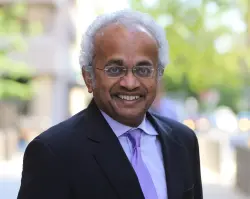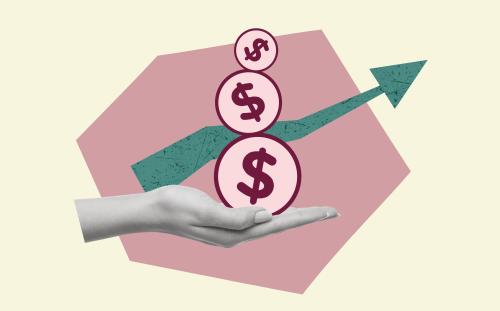While others have advocated for universal basic income (UBI) to address problems in the labor market or to replace inefficient and inequitable subsidies, my co-authors and I make the case in a new working paper for using UBI to improve the efficiency of public spending, especially in weak, oil-exporting countries. By distributing oil revenues directly to citizens, and then taxing them, we create incentives for citizens to scrutinize public spending (it’s their “tax dollars at work”), and that in turn leads to better outcomes.
Currently, citizens don’t know whether bad public-spending outcomes are a result of not enough money (a frequent refrain of governments) or if the money is being misspent. Therefore, they have little incentive to scrutinize public spending. With UBI, the uncertainty about the extent of oil revenues is reduced. The reduction in uncertainty increases the incentive to scrutinize government spending, thereby improving the efficiency of public expenditures.
But there is a problem with this case for UBI, as several colleagues have pointed out. “Don’t you realize,” they say, “that the reason public spending outcomes are poor is that the government is siphoning off the oil money into its own pockets? Why would a government want to give that up and subject itself to greater scrutiny?”
There are at least two responses to this point. First, in the paper mentioned above, we developed a model where the government has two components in its objective function: (1) a public good and (2) what we euphemistically call a private good (denoted by the letter s, for Swiss bank accounts, perhaps?). Since the government must allocate revenues between these two goods, if enhanced citizen scrutiny lowers the cost of producing public goods, than the part of the savings can go to s. To be sure, in the particular case of the log-linear objective function in our model (chosen for simplicity), this doesn’t happen, but one can think of other government preference functions where it does.
Moreover, poor public-spending outcomes may not be just due to stealing at the top but also to leakages at various points in the chain of service delivery. For example, the leakage rate of non-wage public spending in health in Chad is 99 percent. One reason is that the central government lacks the capacity to monitor the local departments and primary health centers, where much of the theft occurs. By creating incentives (through a combination of UBI and taxation) for citizens to contribute to monitoring, the central government can improve public spending outcomes, please the donors, and still have something left over to take home.
The second response is based on some ongoing work with my colleague Quy-toan Do. Suppose a government that earns oil revenues, and initially keeps all of the money, has a need for even more resources to finance a large project. The project may succeed or fail. The government can also “cheat” by, say, giving procurement contracts to its cronies, which increases the chances that the project will fail, but generates a private benefit to government. The government offers the citizens a deal: It will transfer a portion of oil revenues as UBI to the citizens and then levy a tax on citizens’ total income (from other sources as well as the UBI). Since the project is risky, the government also agrees that if the project fails it subjects itself to an audit, paid for by the citizens. If the audit finds that the government has cheated, then citizens will get some fraction of their tax payments back. In this setting, we find out under which conditions citizens are willing to pay enough in taxes to finance the project. The possibility of an audit, if the project fails, makes citizens more willing to pay taxes ahead of time.
The intuition is as follows. Since the citizens are paying the cost of the audit, an audit will take place only if the tax revenue—and hence the amount the citizens can get back in the case of fraud—is high enough. And if the tax revenue is high enough, the government will not cheat, since the gains from a successful project exceed the combination of the benefits from cheating and the costs of paying the citizens back as a result of the audit. Knowing this, the citizens are willing to accept the package of UBI and taxation to realize the project.
In the jargon of economics, these two responses address the main problems of decisionmaking under uncertainty: asymmetric information (the citizens don’t know if the government is mis-performing or if the money isn’t there); and moral hazard (giving the government additional resources may induce it to cheat and say that the project failed because of bad luck). In both cases, universal basic income can be part of the solution.
The Brookings Institution is committed to quality, independence, and impact.
We are supported by a diverse array of funders. In line with our values and policies, each Brookings publication represents the sole views of its author(s).





Commentary
Two reasons why rentier states would adopt universal basic income
September 12, 2017